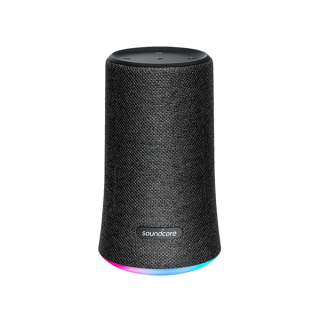Introduction
Healthcare is one of the fastest-evolving sectors in Florida, reflecting both the state’s growing population and its status as a hub for medical research, technology, and innovation. With more than 23 million residents—including one of the largest senior populations in the U.S.—Florida has unique healthcare demands.
In 2025, Florida is at the forefront of digital health, biotechnology, telemedicine, and patient-centered care. Hospitals, universities, and startups across the state are introducing solutions that improve efficiency, reduce costs, and expand access to quality care. This article explores the key innovations shaping healthcare in Florida today.
The Growing Need for Healthcare Innovation
Florida’s healthcare system is under increasing pressure:
- Population Growth: Florida adds hundreds of thousands of new residents annually.
- Aging Population: Nearly 21% of Floridians are over the age of 65, requiring specialized geriatric care.
- Chronic Diseases: High rates of diabetes, heart disease, and obesity increase healthcare demand.
- Rural Access Gaps: Many rural communities lack specialized healthcare services.
To address these challenges, Florida’s healthcare sector is turning to innovation, blending technology with patient-centered care.
Major Innovations in Florida’s Healthcare Landscape
- Expansion of Telemedicine
Telemedicine gained momentum during the COVID-19 pandemic and remains a cornerstone of Florida’s healthcare in 2025.
- Patients in rural areas now access specialists through video consultations.
- Hospitals like Mayo Clinic in Jacksonville and Cleveland Clinic in Weston have robust telehealth programs.
- Remote monitoring devices help doctors track patient vitals in real time, reducing emergency visits.
Telemedicine has particularly benefited seniors, saving them long travel times for routine checkups.
- Artificial Intelligence (AI) in Diagnosis and Treatment
AI-powered tools are revolutionizing how doctors diagnose and treat patients.
- AI imaging software helps detect early signs of cancer, strokes, and heart disease.
- Predictive analytics identify patients at risk of chronic conditions before symptoms worsen.
- AI chatbots support patients with medication reminders and answering common health questions.
Hospitals in Miami and Orlando are piloting AI-driven platforms to improve patient outcomes and streamline administrative tasks.
- Biotechnology and Genomics
Florida is emerging as a biotechnology hub, especially in cities like Orlando, Tampa, and Jupiter.
- The Scripps Research Institute Florida and Max Planck Florida Institute for Neuroscience are conducting groundbreaking genetic research.
- Genomic testing is being used to create personalized treatment plans for cancer and rare diseases.
- Startups are focusing on regenerative medicine, stem cell therapy, and new drug development.
This research is not only improving care in Florida but also contributing to global medical advancements.
- Smart Hospitals and Digital Records
Healthcare facilities are becoming “smart hospitals” with integrated technology.
- Digital health records (EHRs) are accessible across networks, improving coordination between doctors.
- Robotics assist in surgeries, ensuring precision and faster recovery times.
- Smart sensors monitor hospital equipment, ensuring safety and efficiency.
Orlando Health and Tampa General Hospital are leaders in adopting these cutting-edge systems.
- Wearable Health Technology
Consumer health devices are playing a bigger role in patient care.
- Smartwatches monitor heart rates, blood pressure, and even detect irregular heart rhythms.
- Patients with diabetes use continuous glucose monitors (CGMs) to track blood sugar levels.
- Fitness apps are integrated with healthcare providers, allowing doctors to see lifestyle data.
This data-driven approach empowers patients to take control of their own health.
- Innovations in Senior Care
Florida’s large senior population has inspired innovations in geriatric healthcare:
- Assisted living facilities are integrating telemedicine and smart sensors for resident safety.
- Virtual reality (VR) therapy is used to treat dementia and improve mental well-being.
- Home healthcare technology allows seniors to age in place with remote monitoring.
These changes not only improve quality of life but also reduce costs for families and healthcare systems.
- Mental Health Technology
Mental health awareness has grown significantly, and Florida is using tech-driven solutions:
- Mobile apps connect patients with licensed therapists instantly.
- AI-based platforms track mood patterns and provide coping strategies.
- Virtual counseling is reducing stigma and expanding access in underserved communities.
Colleges and universities are also adopting digital counseling programs for students.
Government and Policy Support
Florida’s government has taken steps to encourage innovation in healthcare:
- Grants for biotech startups and university research projects.
- Policies that expand insurance coverage for telehealth services.
- Incentives for hospitals adopting green and sustainable healthcare technology.
These initiatives aim to strengthen the state’s position as a healthcare leader.
Challenges in Implementing Healthcare Innovations
While Florida has made major progress, challenges remain:
- Cost Barriers: Advanced technology can be expensive for smaller hospitals and clinics.
- Digital Divide: Not all residents have access to high-speed internet for telehealth.
- Data Privacy: Expanding digital health tools raises cybersecurity concerns.
- Workforce Training: Healthcare workers need ongoing training to use new technologies effectively.
Addressing these barriers is crucial to ensuring equitable healthcare access.
The Future of Healthcare in Florida
Looking ahead, experts predict several trends will shape Florida’s healthcare in the next decade:
- Increased use of AI and machine learning in predictive medicine.
- Expansion of precision medicine tailored to individual genetics.
- Growth in eco-friendly healthcare infrastructure.
- Continued rise of home-based healthcare solutions.
- More partnerships between universities, startups, and hospitals to drive innovation.
If Florida continues on its current trajectory, the state could become a global leader in healthcare innovation.
Conclusion
Healthcare in Florida is undergoing a transformation in 2025, with innovations in telemedicine, biotechnology, AI, and senior care leading the way. These advancements are not only improving patient outcomes but also helping the state address its unique demographic and geographic challenges.
By investing in cutting-edge technologies and patient-centered solutions, Florida is building a healthcare system that is more accessible, efficient, and prepared for the future.






Hey there! Do you know if they make any plugins to assist with Search Engine Optimization? I’m trying to get my blog to rank for some targeted keywords but I’m not seeing very good results.
If you know of any please share. Thanks!
But wanna input that you have a very nice web site, I love the pattern it really stands out.